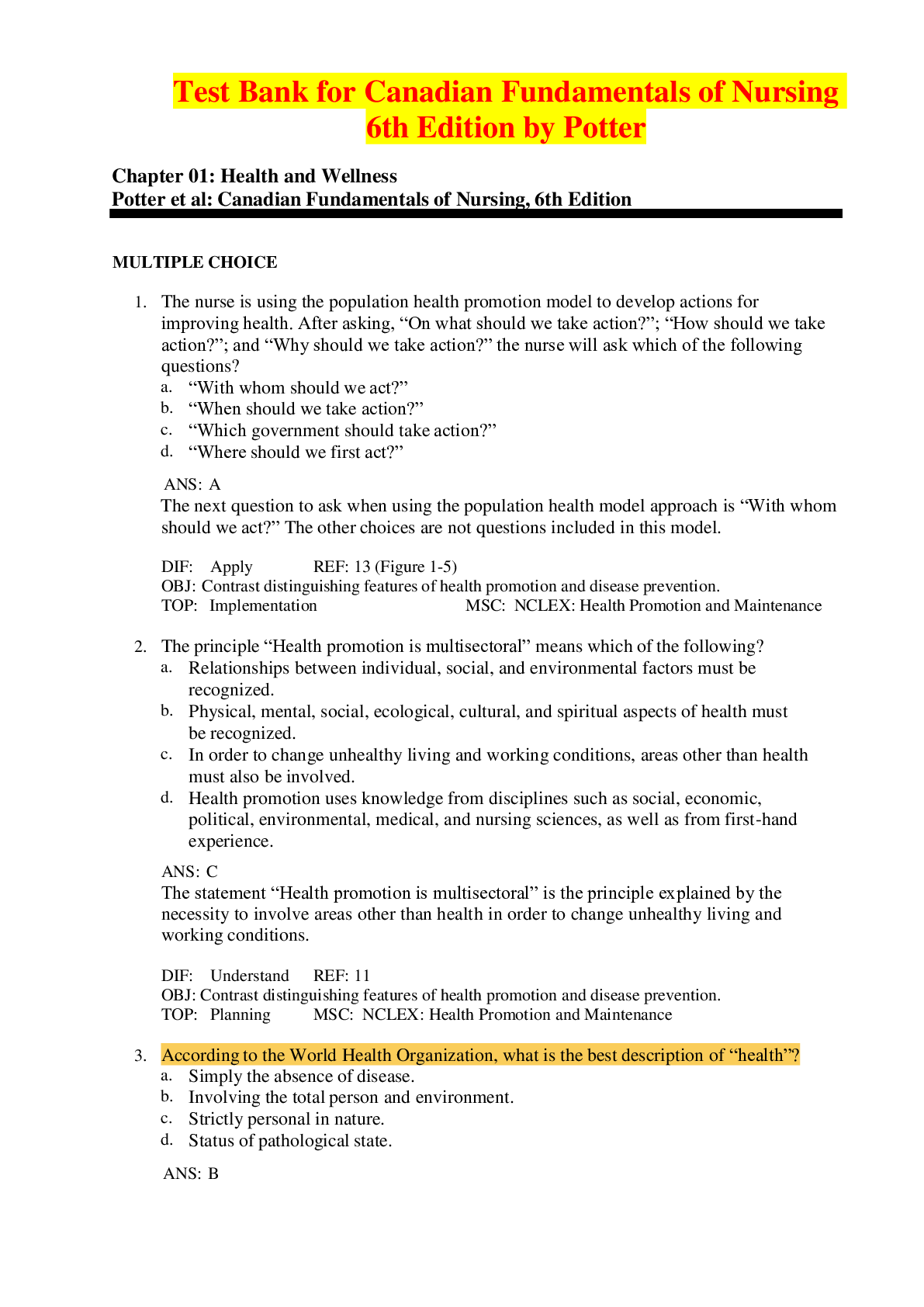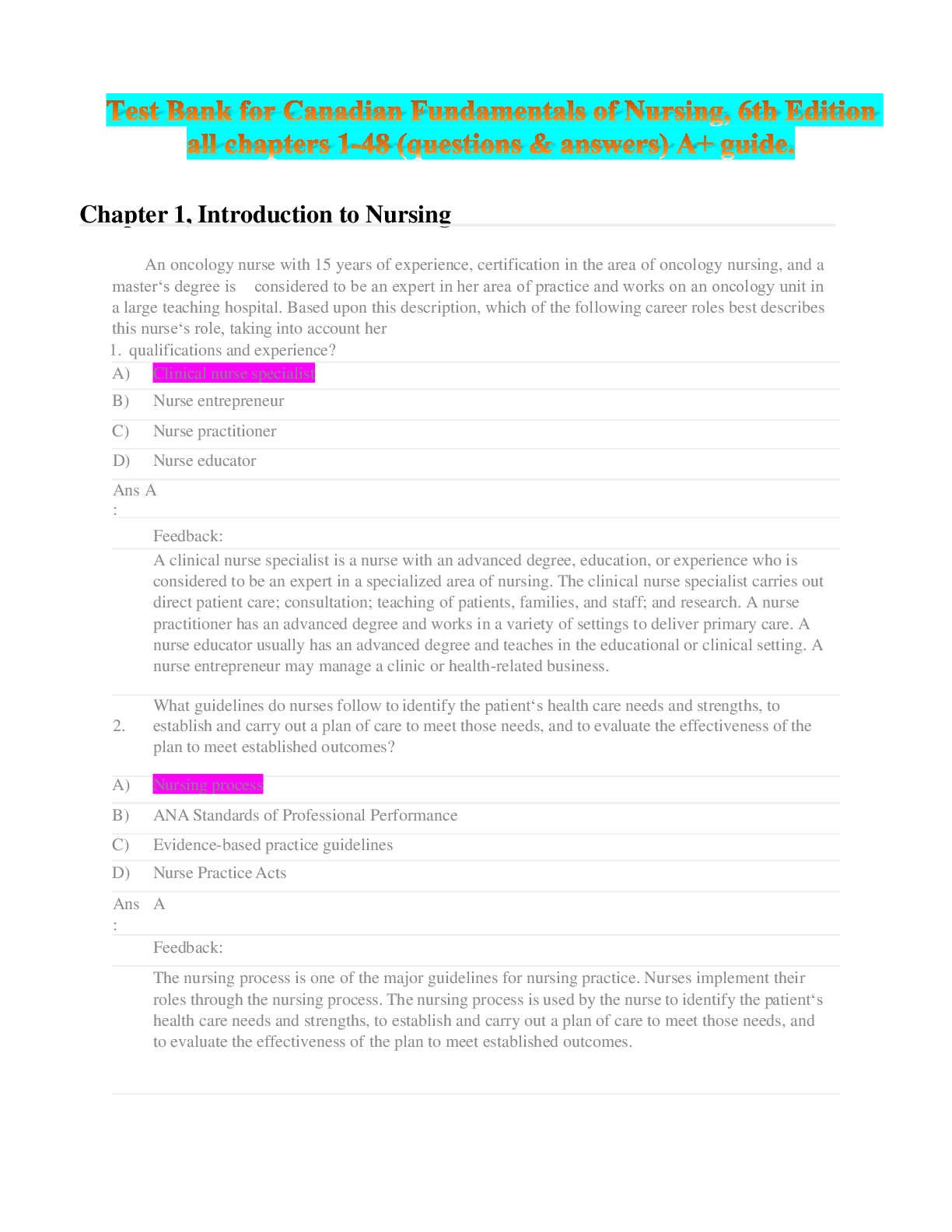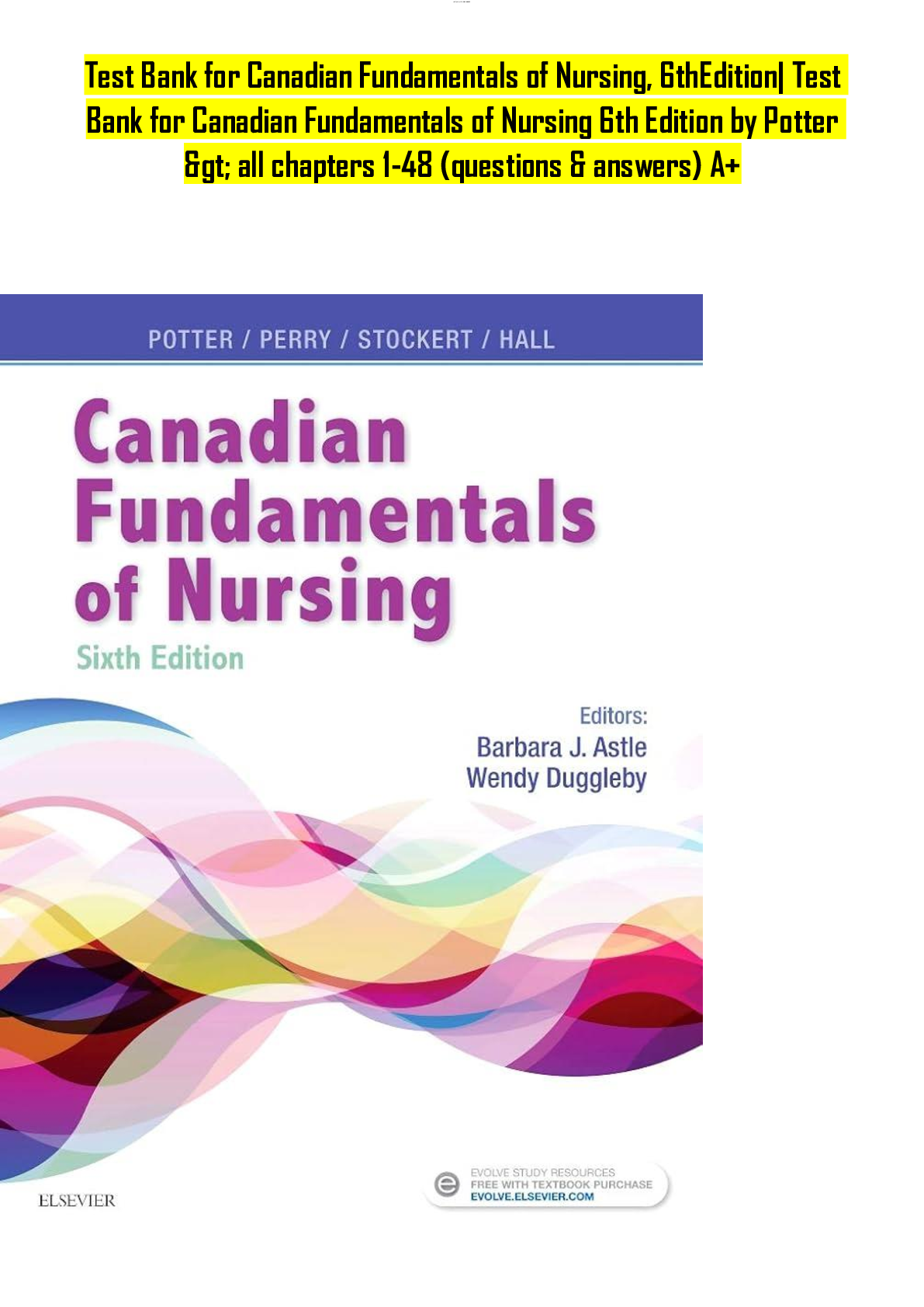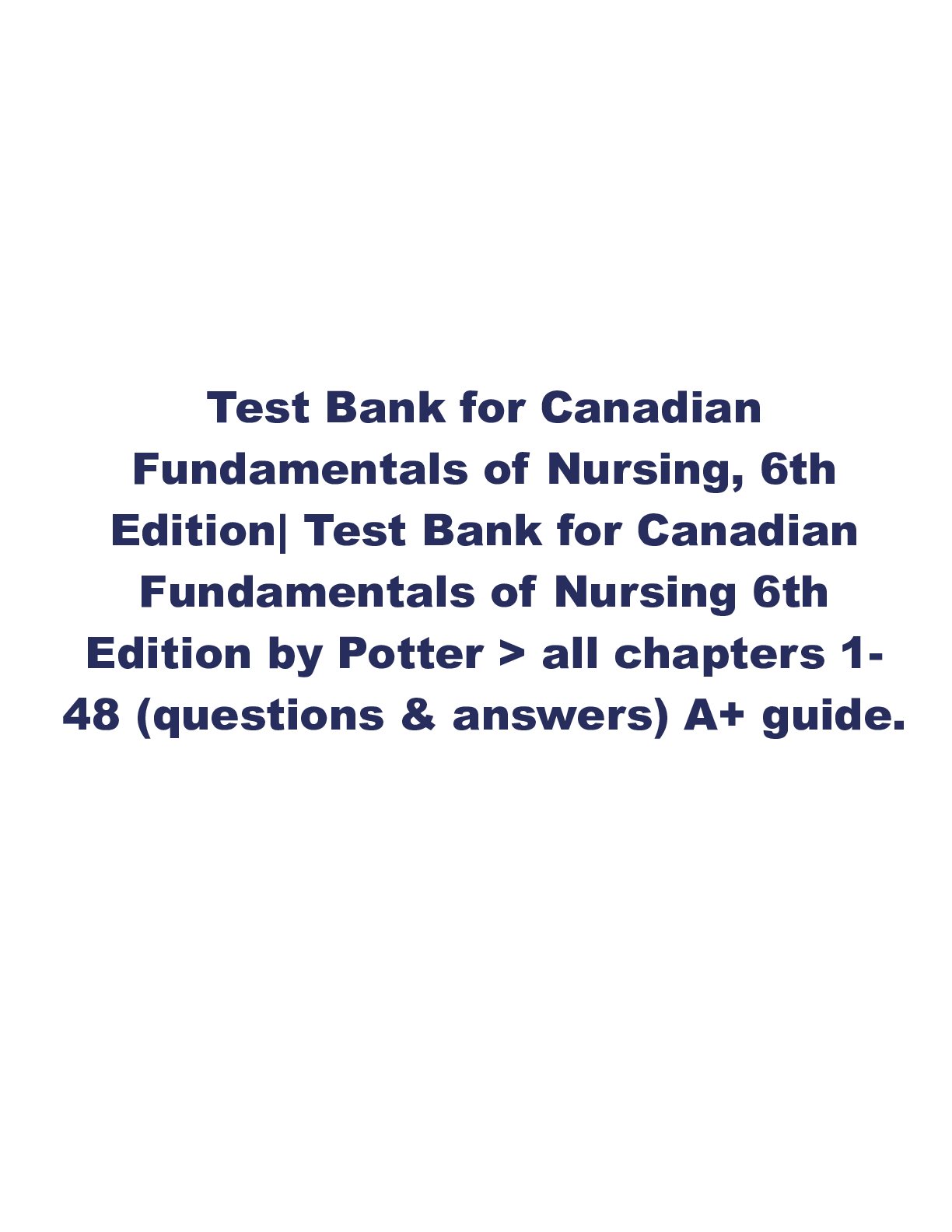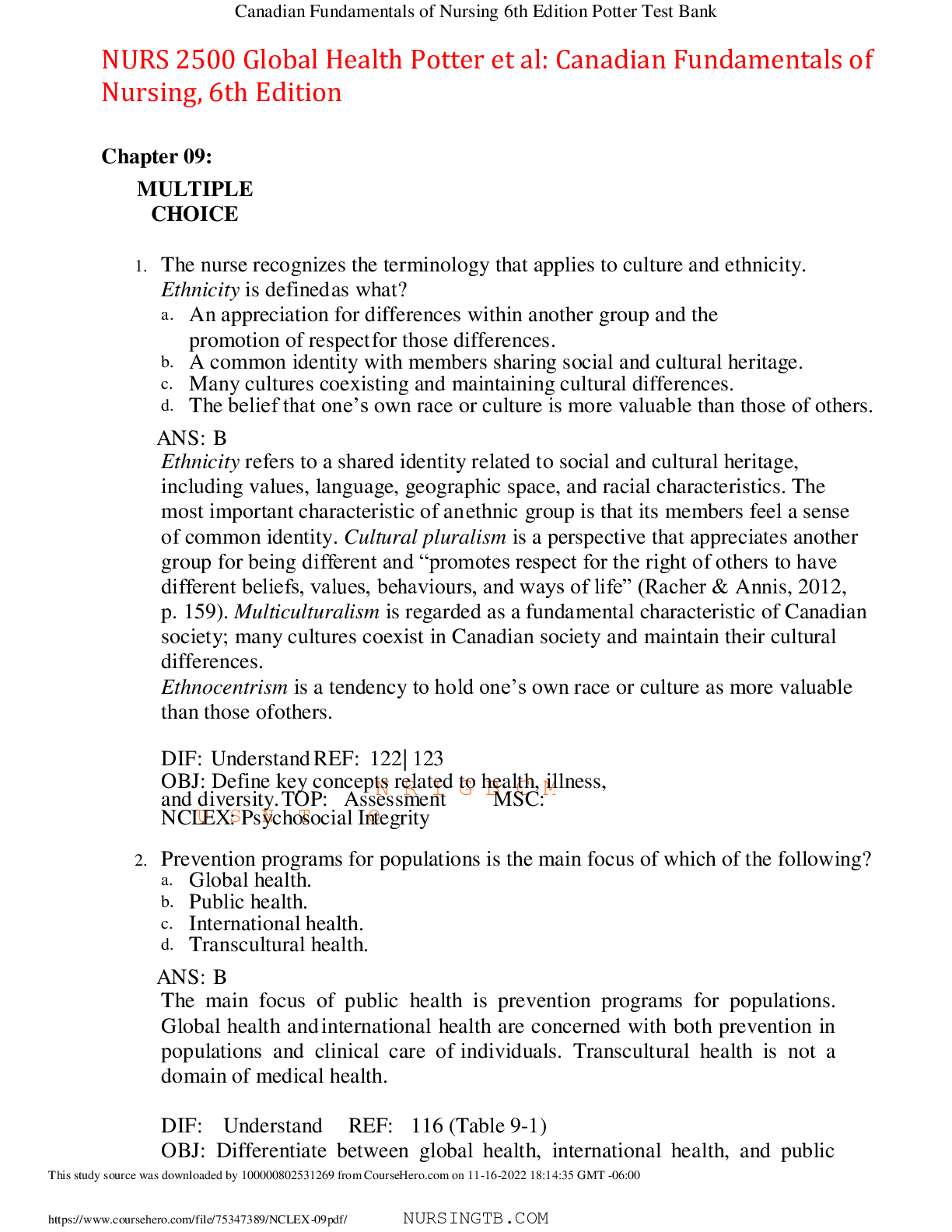*NURSING > EXAM > Potter et al: Canadian Fundamentals of Nursing, 6th Edition/Chapter 43: Urinary Elimination/RATED A+ (All)
Potter et al: Canadian Fundamentals of Nursing, 6th Edition/Chapter 43: Urinary Elimination/RATED A+
Document Content and Description Below
Chapter 43: Urinary Elimination Potter et al: Canadian Fundamentals of Nursing, 6th Edition MULTIPLE CHOICE 1. If obstructed, which component of the urination system would cause peristaltic waves? 2. ... When reviewing laboratory results, the nurse should immediately notify the health care provider about which finding? 3. A patient is experiencing oliguria. Which action should the nurse perform first? 4. A patient requests the nurse’s assistance to the bedside commode and becomes frustrated when unable to void in front of the nurse. The nurse understands that the patient is unable to void for which reason? 5. The nurse knows that urinary tract infection (UTI) is the most common health care–associated infection for which of the following reasons? 6. An 86-year-old patient tells the nurse that she is experiencing uncontrollable leakage of urine. Which nursing diagnosis should the nurse include in the patient’s plan of care? 7. A patient has fallen several times in the past week when attempting to get to the bathroom. The patient informs the nurse that he gets up three or four times a night to urinate. Which recommendation by the nurse is most appropriate in correcting this urinary problem? 8. When caring for a patient with urinary retention, the nurse would anticipate an order for which of the following? 9. Upon palpation, the nurse notices that the bladder is firm and distended; the patient expresses an urge to urinate. The nurse should follow up by asking which question? 10. Which of the following is the primary function of the kidneys? 11. While receiving a shift report on a patient, the nurse is informed that the patient has urinary incontinence. Upon assessment, what would the nurse expect to find? MSC: NCLEX: Physiological Integrity 12. Which nursing diagnosis related to alterations in urinary function in an older person should be a nurse’s first priority for action? a. Self-care deficit related to decreased mobility. b. Risk of infection. c. Anxiety related to urinary frequency. d. Impaired self-esteem related to lack of independence. ANS: B In many older persons, muscle tone is poor, which leads to an inability of the bladder to empty completely. Residual urine greatly increases the risk of infection. According to Maslow’s hierarchy of needs, physical health risks should be addressed before emotional/cognitive risks such as anxiety and self-esteem. Decreased mobility can lead to self-care deficit; the nurse’s priority concern for this diagnosis would be infection because the older person must rely on others for basic hygiene. DIF: Apply REF: 1173 OBJ: Identify nursing Diagnosis appropriate for patients with alterations in urinary elimination. TOP: Planning MSC: NCLEX: Physiological Integrity [Show More]
Last updated: 1 year ago
Preview 1 out of 15 pages
Instant download

Instant download
Reviews( 0 )
Document information
Connected school, study & course
About the document
Uploaded On
Jun 24, 2022
Number of pages
15
Written in
Additional information
This document has been written for:
Uploaded
Jun 24, 2022
Downloads
0
Views
35

.png)
 (1).png)
 (1).png)
 (1).png)
 (1).png)
 (1).png)
 (1).png)
.png)
.png)
.png)
 (1).png)
.png)
.png)
.png)
.png)

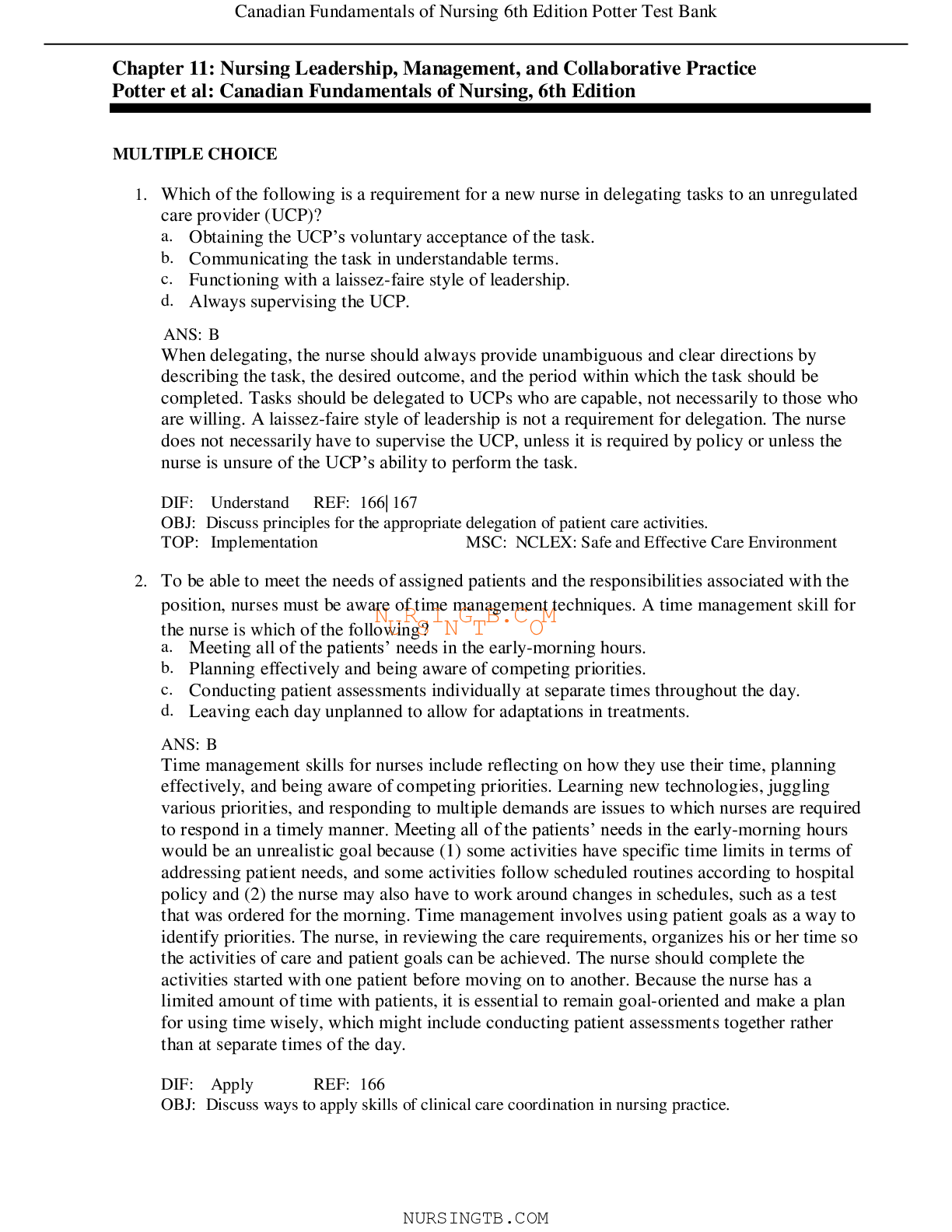
.png)
